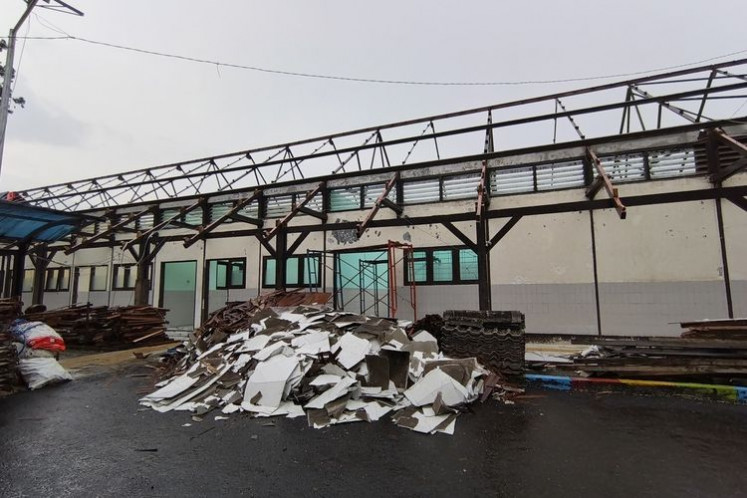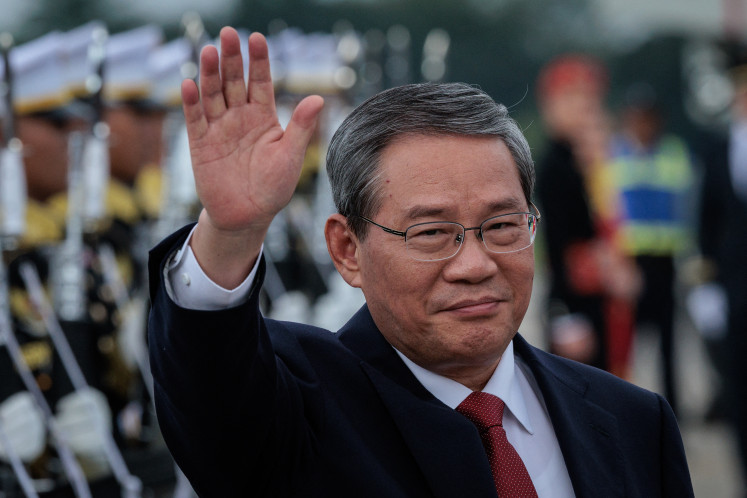Companies that still destroy forests
Balancing forest protection and economic growth not only requires political leadership but strong leadership from the corporate sector
Change text size
Gift Premium Articles
to Anyone

B
alancing forest protection and economic growth not only requires political leadership but strong leadership from the corporate sector. That is why Greenpeace and hundreds of thousands of people in Indonesia and around the world who support forest protection are pushing companies to clean up their supply chains.
When the companies show they want to change and remove forest destruction from their supply chains, we sit down with them and review their policies. Just last week, Johnson & Johnson committed to No Deforestation, following on the heels of other consumer goods giants like Procter & Gamble.
But the measure of success is how the policy is implemented. This is how we can determine how serious companies are about deforestation.
Putting forest protection into practice is not easy, but one problem that can arise is when the process comes under dispute. Exploiting this confusion to continue business as usual, is what we call the 'talk and log' approach, and in this scenario the forests are certainly not winning the reprieve they need.
But there is a method to put forest protection into practice, and there is growing consensus from industry leaders on how to implement it.
In the last three years Greenpeace, together with The Forest Trust (TFT) and Indonesian palm oil giant Golden Agri Resources, have been developing a way to do this ' the High Carbon Stock (HCS) approach. It's what we call 'putting No Deforestation into practice' ' a process already trialed by Indonesian palm oil giant Golden Agri Resources, and already under scientific review. The process determines which viable areas of natural forests must be protected and restored, as well as ensuring that the current and future land use rights of local communities are respected.
The HCS approach uses a combination of high quality satellite photos and plots on the ground to divide vegetation into different types. These are then analyzed and sorted to get a picture of HCS forest for conservation, including removing community food growing areas, and incorporating carbon-rich peat land and areas of high biodiversity value into one conservation plan.
At the same time, it identifies degraded areas that can be developed to balance out economic needs.
We are still learning and adapting the approach as we go but support is growing, with many companies committing to protect HCS forests such as Nestle, L'Oreal, Unilever, Ferrero, Kellogg's, Colgate-Palmolive, Wilmar and GAR.
It is that commitment that is the test as to whether companies are serious about ending their role in deforestation, or whether they want to keep talking about the problem without actually taking the first crucial step: stopping the bulldozers. A paper commitment is worthless, without immediately taking the step to stop clearance while the HCS approach is implemented.
Identification of HCS forest areas would also help governments fulfill their commitment to reduce their country's greenhouse gas emissions from deforestation. It would help indicate which areas should be conserved and which might be suitable for development.
Greenpeace believes that it is critical for the Indonesian government to fully support this joint private sector/civil society initiative, and they can do so by facilitating a framework that enables carbon stock and forest conservation, as well as reviewing and amending forestry regulations to conserve forest within concessions and 'land swaps'.
The government should also insist on similar requirements across all industries operating in tropical forest areas.
Greenpeace and its supporters have petitioned, lobbied and called out companies involved in forest destruction. We don't stop simply because a company has a paper agreement to stop deforestation.
This promise must translate to change on the ground, and Greenpeace will continue to expose companies for their role in forest destruction ' even those companies long considered to be so-called leaders in forest protection.
The writer is a forest campaigner at Greenpeace Southeast Asia in Jakarta.









